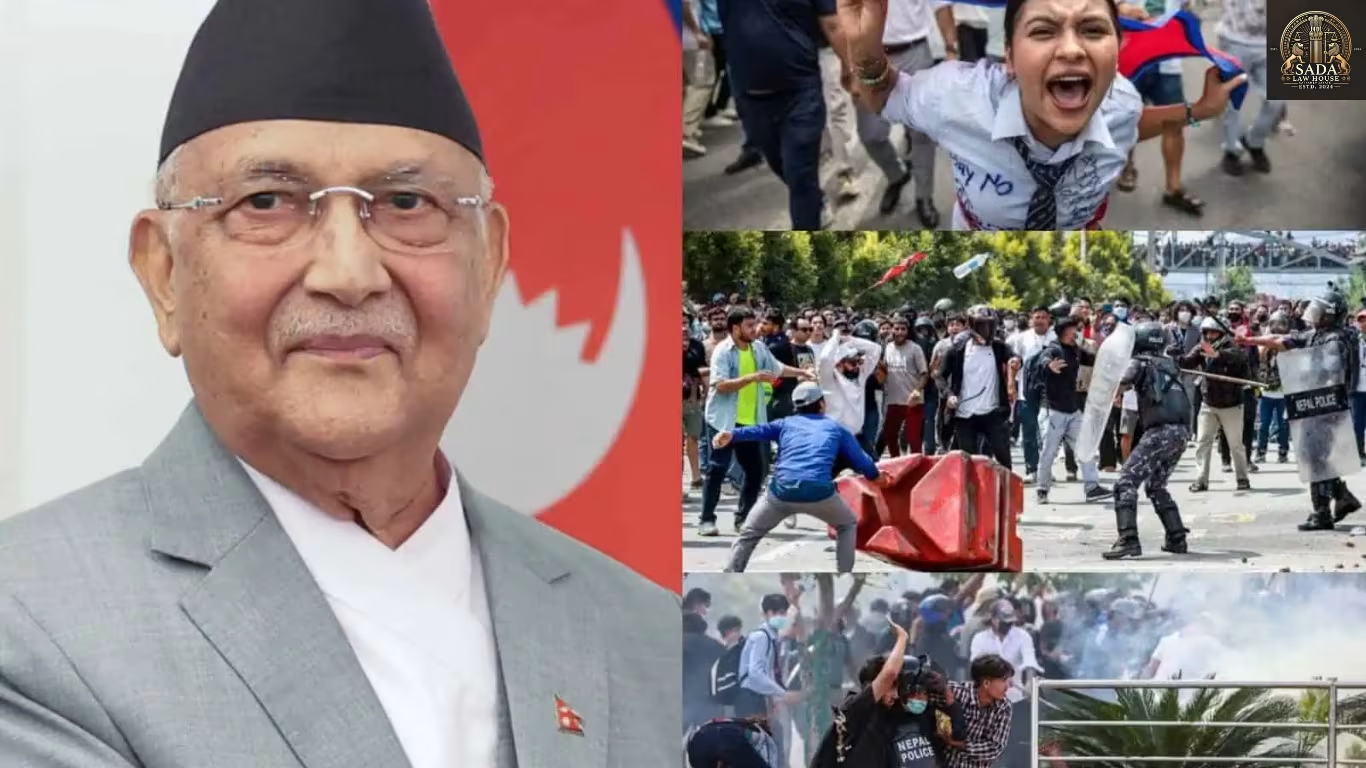Gen-Z Uprising: Nepal PM Oli Resigns Amid Deadly Anti-Corruption Protests
- Shivani Garg
- 11 September 2025

Introduction:
On 9 September 2025, Nepalese Prime Minister K.P. Sharma Oli resigned amid a wave of Gen-Z-led anti-corruption protests that turned violent after the government banned major social media platforms. The uprising, marked by deadly clashes, destruction of government institutions, and the imposition of curfews, has created a political power vacuum and highlighted deep frustrations among Nepal’s youth.
Background:
The protests erupted following a government decision to ban social media platforms, citing concerns about fake accounts and misinformation. Already disillusioned by corruption, nepotism, and poor economic prospects, Gen Z activists mobilized online and took to the streets. Demonstrations rapidly escalated into violent confrontations, leaving at least 19 dead, more than 300 injured, and key government buildings—including Singha Durbar, Parliament, and the Supreme Court—set ablaze.
Key Developments:
Prime Minister Oli announced his resignation, citing constitutional obligations and the severity of the crisis.
The government imposed indefinite curfews in Kathmandu and Bhaktapur and shut down Tribhuvan International Airport.
Protesters briefly celebrated, chanting slogans and spray-painting “We won” on Parliament’s walls.
The Nepal Army assumed control to restore order and pledged to safeguard national unity.
President Ram Chandra Poudel accepted Oli’s resignation and began consultations with political parties and protest leaders.
Issues:
Institutional Fragility: The storming of government institutions reflects vulnerabilities in Nepal’s democratic framework.
Generational Revolt: Gen Z’s mobilization underscores a growing demand for structural reforms and political accountability.
Power Vacuum: With Oli’s departure, uncertainty looms over leadership, raising questions about stability and succession.
Regional Sensitivities: India and Western embassies have urged restraint, mindful of Nepal’s strategic importance.
Current Status:
As of mid-September 2025, Nepal remains under military control to maintain order. President Poudel has begun consultations to form a new government, with reformist leaders like Kathmandu’s Mayor Balendra Shah emerging as potential figures of hope. The social media ban has been withdrawn, but protests remain active, and the demand for systemic reform persists. International observers continue to urge restraint and the protection of democratic rights.
Conclusion:
The Gen-Z uprising in Nepal represents a decisive generational challenge to entrenched systems of corruption and inequality. While Oli’s resignation marks a turning point, the path forward is fraught with uncertainty. Restoring stability will require not only immediate crisis management but also deep structural reforms, greater transparency, and genuine inclusion of youth voices in governance. The coming months will determine whether this upheaval catalyzes renewal or further instability in Nepal’s fragile democracy.






